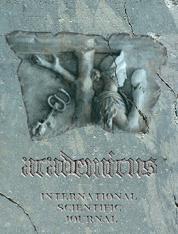Intercultural and Interreligious Communication in the Balkan
Intercultural and Interreligious Communication in the Balkan
Author(s): Arta MusarajSubject(s): Cultural Essay, Political Essay, Societal Essay
Published by: Academicus
Keywords: Religious co-existence; intercultural communication; national identity; Balkan countries; conflict; European integration
Summary/Abstract: The desire to belong in a individual culture means to possess a clear vision for the world, a road map that guides its followers towards the proper understanding of the planet’s past present and future. An established mythology of apparent national identities in the Balkans is somewhat unnaturally reinforced to justify conflicts between religious and ethnic groups, caused as a result of the national identities intertwined among themselves, an element essentially more influential than existence of national identities. For centuries Christians and Muslims in the Balkans have been living in peace, however a few Balkan Societies continue to use violence, national extremism, xenophobia as well as a contemporary practice to solve their problems. A legitimate question can be raised in relation to how common is religious influence used to cause violent and armed conflicts as compared to violence originating from ethnic cleansing, control over territory, political ideology and regional hegemony?
Journal: Academicus International Scientific Journal
- Issue Year: IV/2013
- Issue No: 07
- Page Range: 036-043
- Page Count: 8
- Language: English

